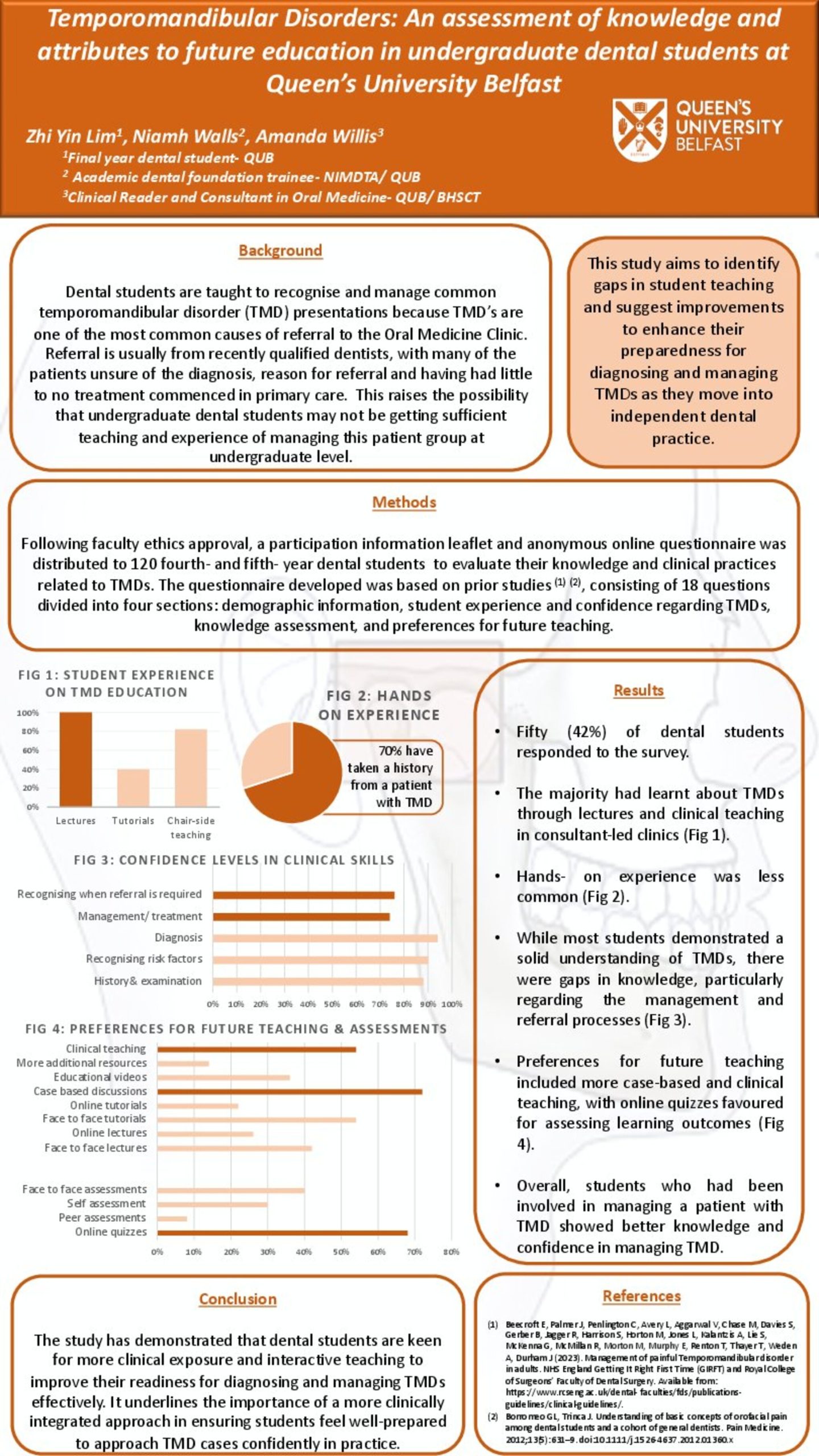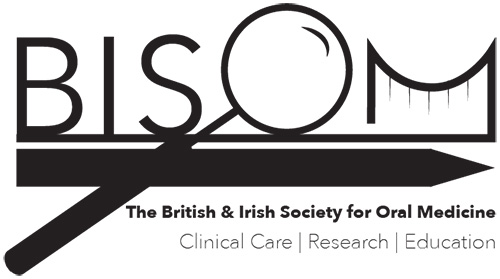Temporomandibular Disorders- An assessment of knowledge and attributes to future education in undergraduate dental students at Queen’s University Belfast
8332
Zhi Yin Lim
Zhi Yin Lim, Dr Walls, Dr Willis
Introduction: As part of their undergraduate teaching at Queen’s University Belfast, dental students are taught to recognise and manage common temporomandibular disorder (TMD) presentations. However, despite this, TMD’s are one of the most common causes of referral to the Oral Medicine Clinic in Belfast Trust, from recently qualified dentists, with many of the patients unsure of the diagnosis, reason for referral and having had little to no treatment commenced in primary care. The aim of this study was to identify gaps in student teaching and suggest improvements to enhance their preparedness for diagnosing and managing TMDs as they move into independent dental practice.
Materials & Methods: Following successful university ethics approval, an anonymous questionnaire was distributed to 120 fourth- and fifth-year dental students at Queen’s University Belfast to evaluate their knowledge and clinical practices related to temporomandibular disorders (TMDs). The questionnaire developed was based on prior studies, consisted of 18 questions divided into four sections: demographic information, student experience and confidence regarding TMDs, knowledge assessment, and preferences for further teaching.
Results: Fifty dental students responded to the survey. The majority had learned about TMDs through lectures and tutorials. Hands-on experience was less common. While most students demonstrated a solid understanding of TMDs, there were gaps in knowledge, particularly regarding the management and referral processes. Preferences for future teaching included more case-based and clinical teaching, with online quizzes favored for assessing learning outcomes. Overall, students who had been involved in managing a patient with TMD showed better knowledge and confidence in managing TMD.
Conclusion: The study has shown that dental students are keen for more clinical exposure and interactive teaching to improve their readiness for diagnosing and managing TMDs effectively.

